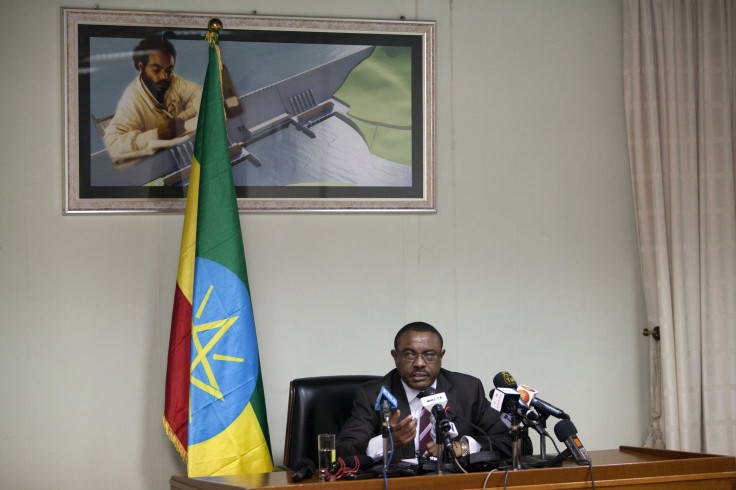Ethiopia's Zone 9 Bloggers Acquitted Of Terrorism Charges After 18 Months In Prison

Four Ethiopian bloggers and journalists were acquitted of terrorism charges Friday morning after spending 18 months in prison. Members of the Zone 9 blogging network Atnaf Berhane, Abel Wabella and Natnail Feleke were expected to be released from custody later Friday. Befekadu Hailu was also acquitted of terrorism but remains in custody on charges of inciting violence, according to AFP news agency.
Six bloggers from the Zone 9 website in Amharic were arrested along with three other journalists in April 2014 and charged with terrorism for having links to an outlawed group, allegedly planning attacks and for attending digital security training. Two of the Zone 9 bloggers were freed this year in July after charges were dropped, alongside the three journalists. One blogger, Soleyana Gebremichael, lives in exile and was acquitted of all charges.
"I have a bittersweet feeling - they spent a year and six months in prison for doing nothing, we spent a year and three months for nothing," journalist Tesfalem Waldyes, who was released from prison in July but came back to the Addis Ababa court to hear the verdict Friday, told AFP. "On charges of terrorism? This absurd, this whole thing is absurd."
The ongoing online campaign that uses the hashtag #FreeZone9Bloggers has sparked thousands of tweets since their arrest. The court case has been widely condemned by rights groups around the world as an attack on press freedom.
The ruling Ethiopian People’s Revolutionary Democratic Front, which has been in power for the past 23 years and has won the last five elections, has been accused of harassing and illegally detaining perceived opponents as well as journalists. At least 60 Ethiopian journalists have fled their country since 2010 and the government has shut down dozens of publications and apparently controls most television and radio outlets.
“The Ethiopian government’s systematic repression of independent media has created a bleak landscape for free expression,” Human Rights Watch said in a report earlier this year.
© Copyright IBTimes 2025. All rights reserved.





















